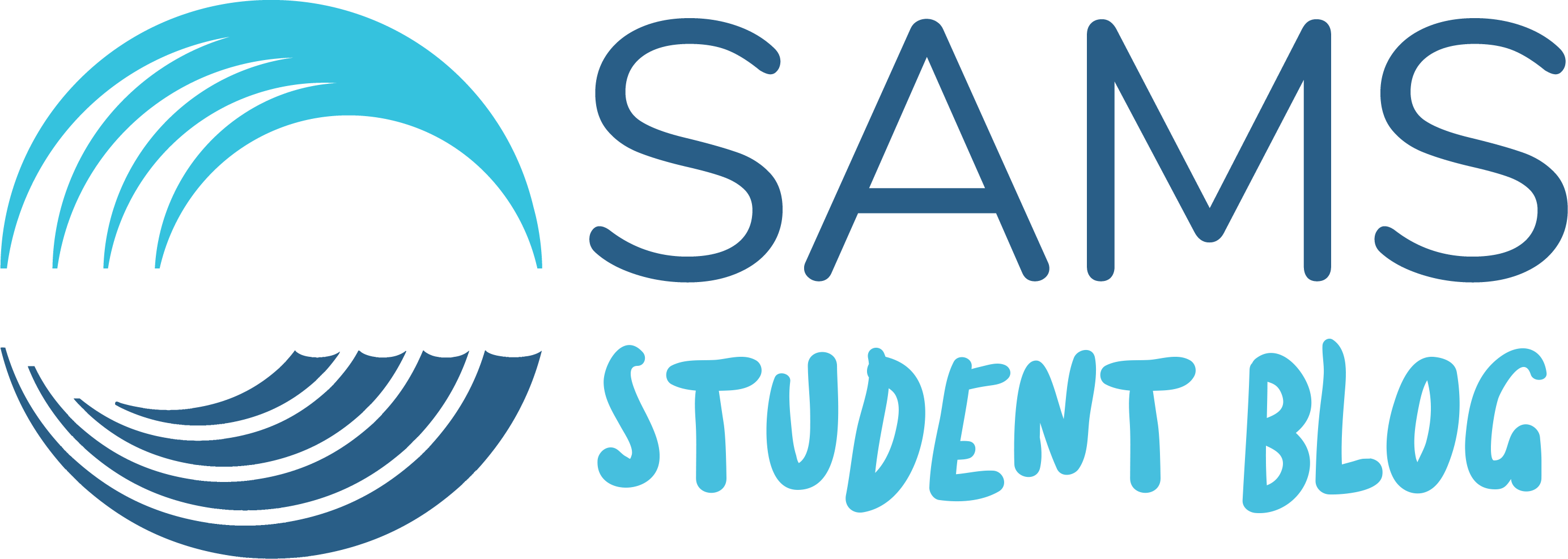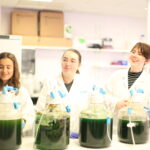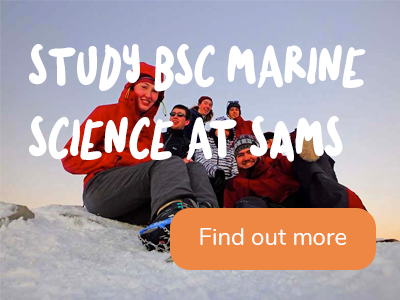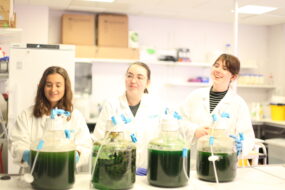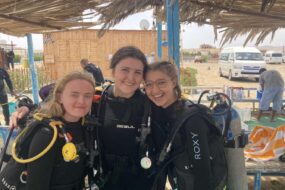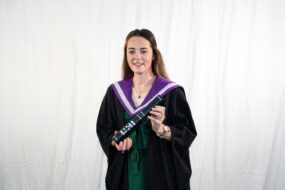By Darcie Anderson, 4th Year SAMS UHI Marine Science student
Marine science is a very broad discipline, and a degree from SAMS UHI can lead to many opportunities post-graduation. This choice can be daunting for some, which is why we have compiled 10 potential career paths marine science graduates can undertake, from academia, to industry and government.
1. Research and academia
If after finishing your degree at SAMS UHI, you feel keen to stay at a university for many more years, a research career could be very suitable. Research scientists tend to have undergraduate, masters and doctoral degrees before taking up post-doctoral and lectureship positions. This career path more than most allows for deep inquiry into specific questions, and can be very variable based on speciality, with the possibility of cruises, lab work, scuba surveys, field work, or even completely desk-based research.
2. Marine and environmental consulting
Consultants generally have very broad workload, and as such is a very enjoyable career for many. Working for a marine or environmental consultative firm involves taking on contracts from commercial and governmental partners, working on everything from renewable energy and aquaculture, to advising on policy, often in short succession, and can take on many forms, from programming to field work. This exciting and adaptable career can be accessed by candidates with varying levels of education; however, masters level education greatly aids applications.
3. Research assistants and Laboratory technicians
Research assistant and laboratory technician are great careers for those who wish to stay in a science career, whether that be working for academic, commercial, or governmental organisations. These careers benefit from master’s level education, however are usually open to those with bachelor’s degrees, so are very suitable for those who wish to get into the job market straight after graduation. These positions are incredibly broad reaching in their scope, and similarly to research scientists and consultants, can take on many forms, however, generally involve assisting principal investigators in setting up, undertaking and analysing studies. Many field research assistants have a field season their work revolves around, so may take on several contracts per year, making their work extremely varied.
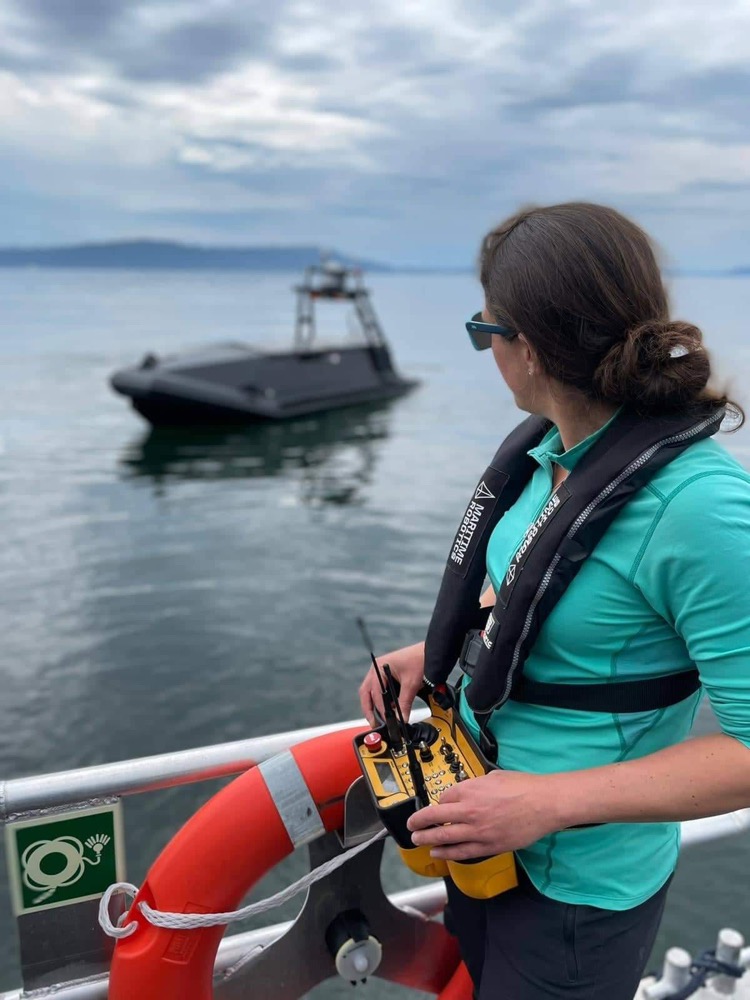
4. Marine tourism
Marine tourism jobs are available in many coastal regions, including here in Oban, and wildlife guide and naturalist jobs generally only require a bachelor’s degree. These careers allow you to be out on the water for much of the year, seeing wildlife frequently and engaging with the public, so understandably have broad appeal. Many marine tourism organisations also actively contribute to conservation and science, by reporting sightings, collecting plankton samples, and producing photo-ID catalogues which would otherwise not be available to the scientific community, so jobs in marine tourism can be attractive, encompassing both science and science communication. Many SAMS students get their start in marine tourism working for one of the many operators in Oban during the summer.
5. Marine conservation
Marine conservation is a broad field with many potential employment opportunities, however most frequently people find employment with conservation NGOs. These are varied, carrying out conservation projects such as coral farming and turtle egg hatcheries, with job descriptions frequently also involving the management of volunteers and outreach work. These jobs typically require a bachelors degree with relevant experience, however masters degrees are advantageous.
6. Aquaculture
If you want to work in aquaculture, there are few places better to live than Scotland. Jobs in aquaculture vary by education and experience, however, include hatcheries management, husbandry, genetics and environmental monitoring. Although many jobs are available with a bachelor’s degree, the Erasmus Mundus Joint Masters degree in Aquaculture, Environment and Society offered at SAMS UHI is attractive to many students who wish to undertake further studies.
7. Marine management
If a career in the civil service is of interest to you, a marine management career could be very suitable. These careers involve using scientific data to give recommendations on fisheries, exploration, resource extraction, and habitat protection to the government, which informs specific policies. Fisheries observing is another career with the government on the management of fisheries, however this one involves being stationed on fishing vessels or at docks, to observe and identify fish caught commercially, to assess compliance to fisheries regulations. Marine management jobs are available at various levels of education, and fisheries observer jobs may require a bachelor’s degree, but this is not always necessary.
8. Science communication and outreach
Science communication is an incredibly valuable career, yet often overlooked. It is very broad, from working in museums and zoos, to creating non-formal education programs, creating social media content, or even working in documentary filmmaking. As this sector is so broad, the education required varies massively, however for many positions a bachelor’s degree is sufficient, especially with experience in science communication.
9. Teaching
The science degree provided at SAMS UHI is very broad, and therefore prepares students well to become teachers. This is an extremely fulfilling career and can be taken on after graduation, however some people may benefit from specialist teaching education in undertaking this career. Several SAMS UHI alumni have used their degrees to become high school science teachers and found great success in these careers.
10. Aquarist
Aquarists are husbandry experts working in aquariums, who usually work in and out of the water to work hands on with the animals in their care, monitor water quality and upkeep their enclosures. As husbandry experts, aquarists feed animals, quarantine new or unwell animals, work on breeding and other conservation programs, provide enrichment activities and ensure that all animals are well. Aquarists often educate members of the public by giving talks about their animals, and tours of the facility. This career is usually available with a bachelor’s degree; however, work experience and internships are of great benefit to get such positions.
Start your Marine Science journey at SAMS UHI. Find out more about our BSc Marine Science programme.
